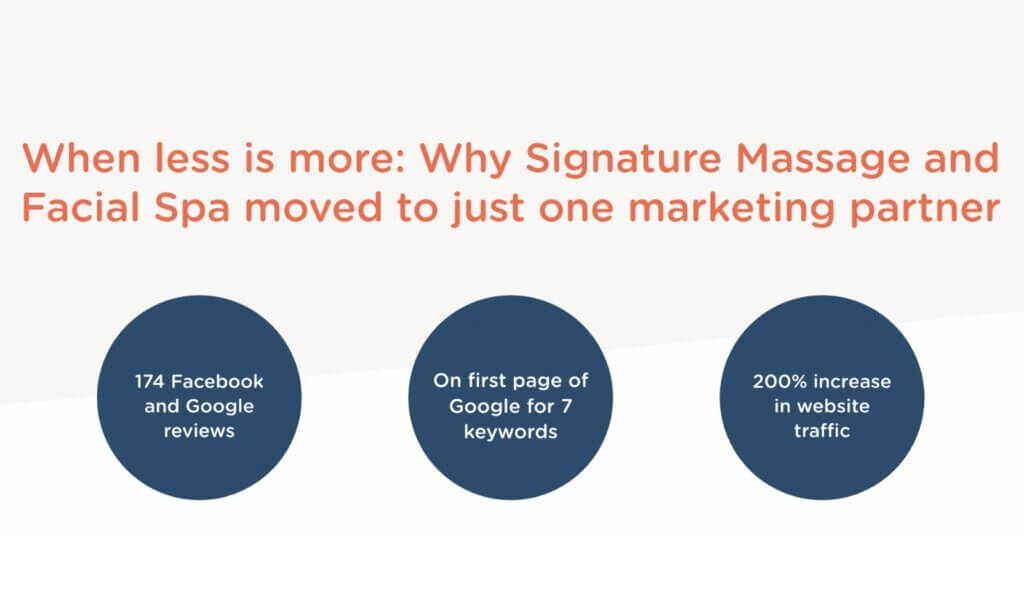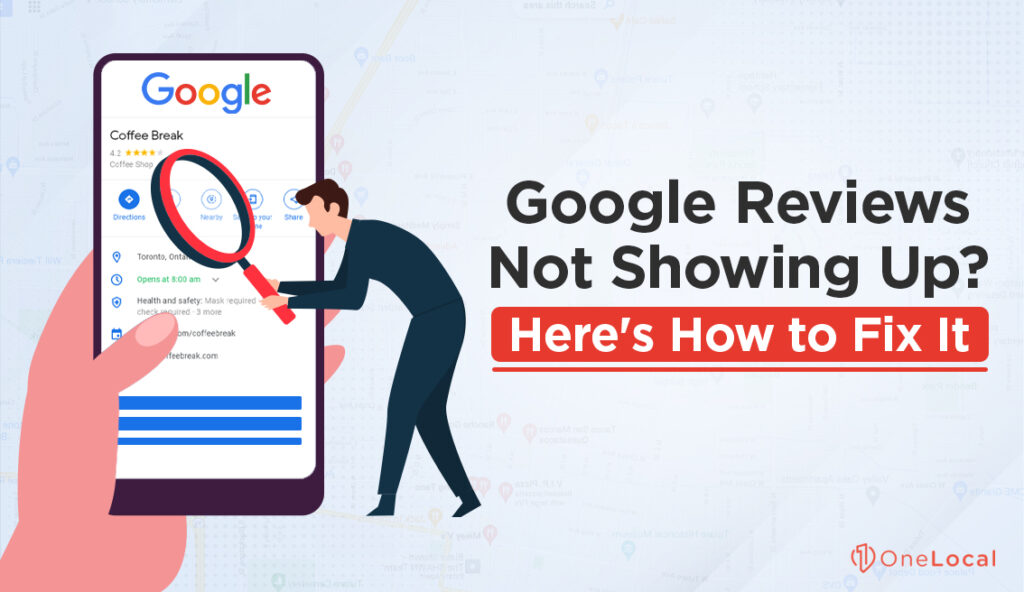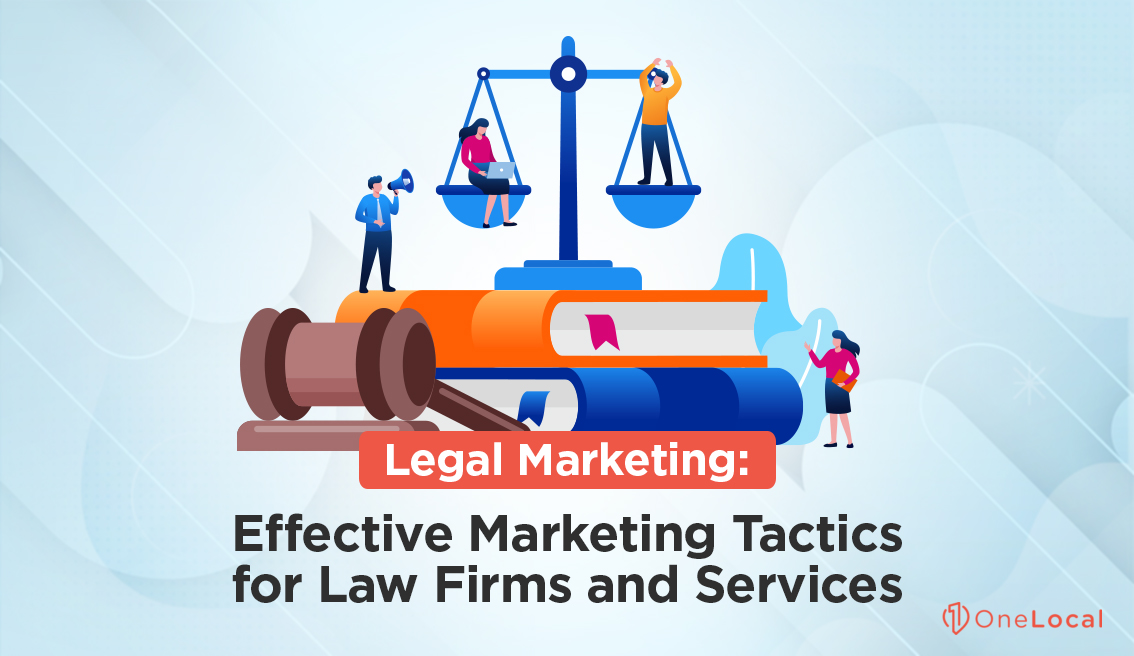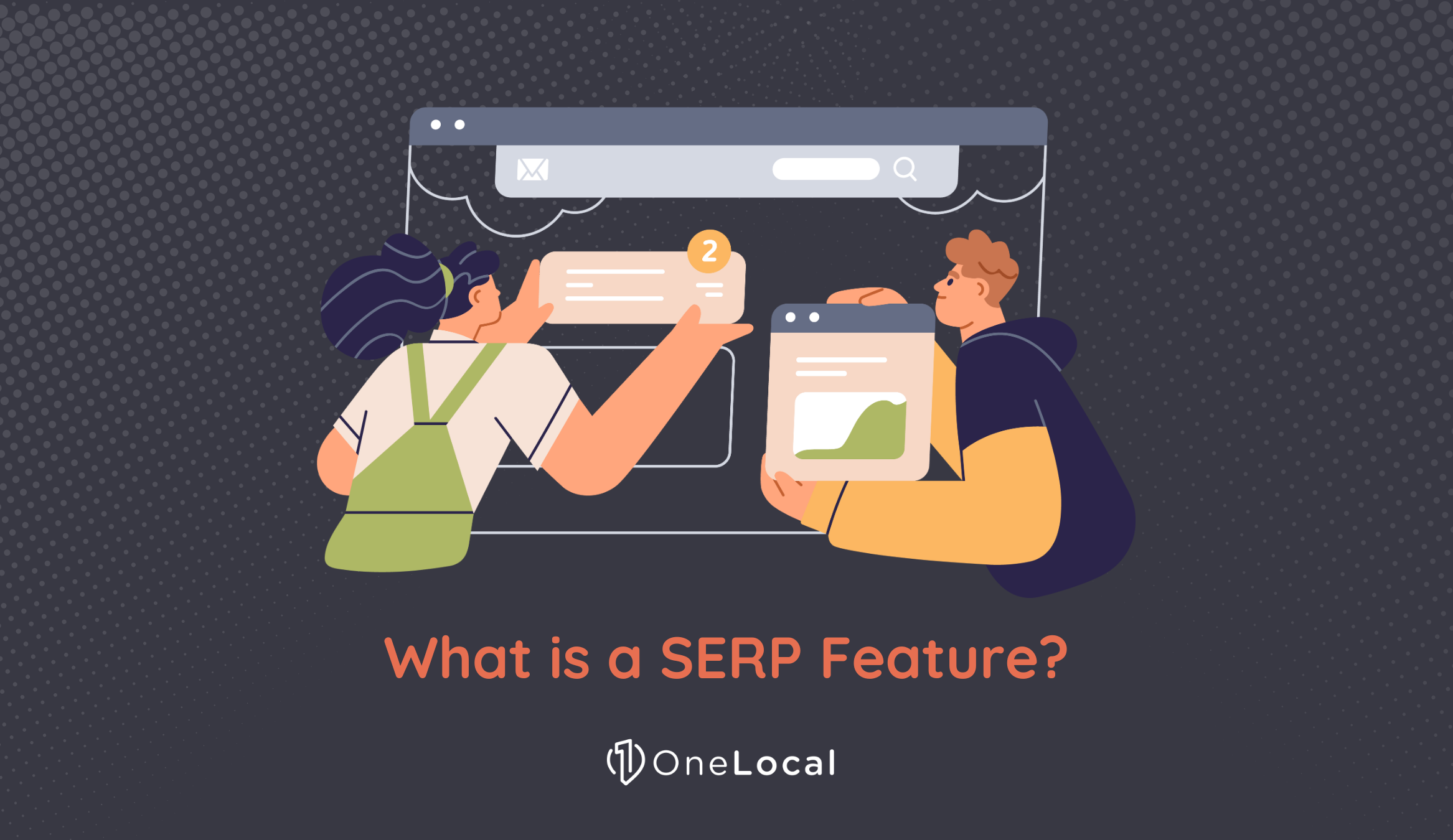In the modern world, law firms and legal service providers are businesses like any other. Well, perhaps not just like any other; rather than selling convenience or outsourced services, law firms can radically alter the trajectory of their clients’ lives.
As a business, you still want to promote your law firm to as large and as relevant an audience as possible. At the same time, you may be subject to more regulations than your average business and have to ensure that you comply with them lest your site or your business be shut down.
How Law Marketing Differs from Traditional Marketing
Marketing a law firm or legal service provider is mostly just like marketing any other business, with a couple of notable differences.
You need to portray yourself as benevolent.

Simply from a social level, lawyers are often portrayed as snakes, as disingenuous liars, and as greedy thieves. Obviously, this isn’t true across the board; a few bad individuals give the industry a poor reputation. Unfortunately, you’ll need to invest time and effort into fighting that reputation, showcasing how you’re different and how you’re just here to help.
You need to comply with regulations and laws.
One of the most significant restrictions on legal marketing are the regulations set forth by the American Bar Association. The ABA comprehensive rules include section 7.2, Communications Concerning a Lawyer’s Services. You can read the full text here, but for now, we’ll summarize:
- You can advertise through any form of media.
- You cannot compensate anyone in exchange for a recommendation, except for specific cases.
- Specific cases include paying for advertising, referrals to other legal service providers in non-exclusive agreements and with disclosure, or if the “compensation” is a nominal gift.
- You cannot state that you’re an expert in a particular field of law unless you have been certified as an expert by the governing authority in your area AND clearly disclose that certifying authority in your communications.
- You must include the name and contact info of at least one lawyer responsible for your legal content. You can’t run a blog and then claim it was a freelancer’s fault if you violate a rule. You are responsible for your content.
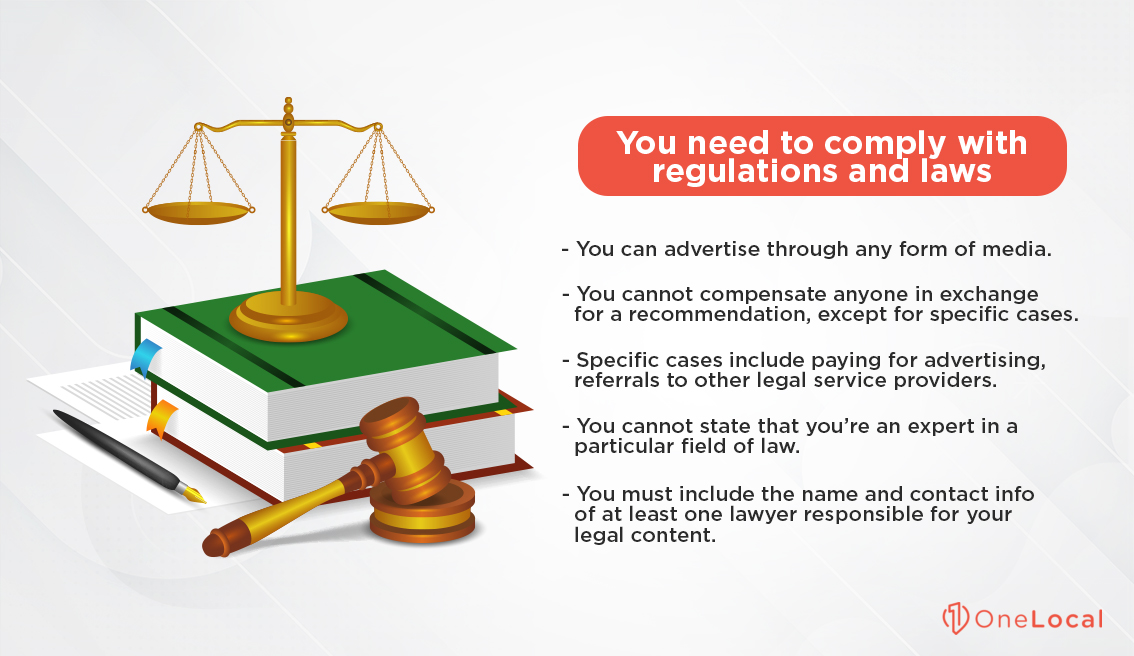
It’s couched in legal language – because of course it is – but it’s pretty simple overall. Don’t claim to be an expert if you aren’t certified to be an expert, don’t have undisclosed or exclusive ties with other organizations or individuals in a way that could be considered monopolistic, and avoid direct solicitation.
One of the main areas where this can be a concern is in content marketing. Content marketing means writing a blog, and writing a blog means producing content for a general web audience to read. You might be a law expert, but writing conversational and easily readable content is an entirely different skill set. So, too, is writing content with an eye for SEO.
You might not want to do that, so you may consider hiring freelance writers to handle it for you. It’s fine if you do, but you need to make sure they understand and comply with these regulations and that you review their content for accuracy. Remember, anything they write will reflect upon you, for good or ill.
You need to monitor Google’s YMYL-style updates.
Google is the dominant force in online marketing, which means their rules are inviolable. Their general guidelines for their algorithm – or at least the humans responsible for reviewing it – is a 172-page document. It’s a lot even for SEO pros to keep track of!
YMYL is one of Google’s many algorithm subroutines and stands for “Your Money or Your Life.” Basically, any site that can dramatically affect someone’s money or life, including their health and financial stability, needs to comply with stricter rules than general interest websites. Among the kinds of sites considered YMYL sites are sites about civics, government, and law.
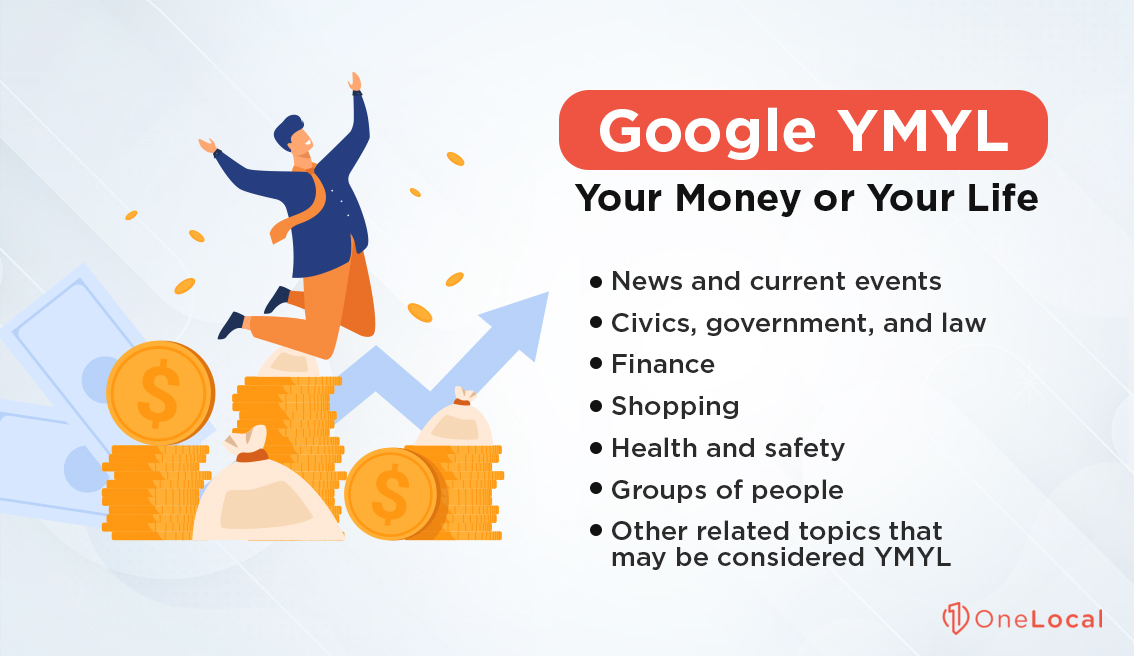
Basically all this means is that Google subjects these sites to a higher level of scrutiny and higher standards because a low-quality site presenting itself as factual could ruin someone’s life or health.
Keeping these additional standards and rules in mind, what marketing strategies can legal providers use?
Top-Level Marketing Strategies for Legal Services
Other than the key differences above, much of the way you can market a law firm online is the same as any other business. Here are the most effective strategies you can use.
1. Establish your law firm’s unique selling point.
What sets your practice apart from others, primarily those in your area?
- Are you the only lawyer in the area specializing in a field, like divorce, personal injury, or copyright?
- Do you specifically focus on working with one type of client, like a specific minority or the impoverished?
- Do you try to be more approachable, friendlier, or more of a “shark” in the courtroom?
Picking a set of unique selling points helps give you two things. First, it gives you a way to differentiate yourself from others in your area who practice the same form of law. Second, it helps you promote yourself in a specific way to a specific kind of person. For example, that third point about being a “shark” might dissuade people who want a friendlier lawyer but will attract people who want to be ruthless and get the most they can out of their case. It all depends on your outlook and the biases of your clients.
Make sure to spend some time in competitive research to see what the unique selling points are for your closest competitors. Trying to compete directly with the USP of your competitors will be much more challenging than finding one they don’t target.
2. Invest in local and general keyword research.
Keywords make the online world go ’round; identifying the primary, secondary, and local keywords most relevant to your legal practice is absolutely critical. Look for keywords relevant to:
- Your areas of practice and specializations, as well as specific services.
- Questions asked on legal forums related to your specialties.
- Keyword suggestions from Google’s autocomplete.
- Keywords relevant to new legislation that impacts your specialty.
- Locally-focused keywords, which are usually some of the above, with additional place names attached.
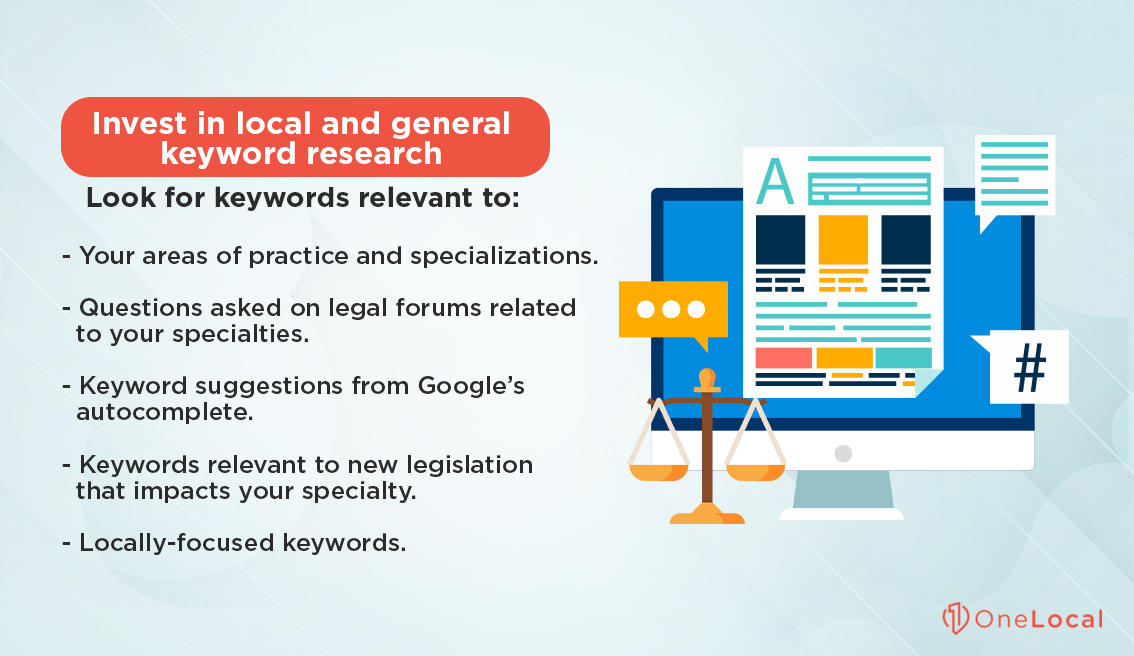
Rankings.io has a great guide about looking for keywords with various tools and resources, specifically for lawyers.
3. Employ content marketing to answer common questions.
Content marketing is the single most important form of marketing in the modern era. Sure, you can pay for ads, but when you stop paying, those ads disappear. You can try to build a reputation and thrive on word-of-mouth, but that only works if you’re exceptional, AND demand for your services is large and consistent enough that potential clients talk to one another.
Content marketing for legal marketing provides a long-term, evergreen, ongoing resource that showcases your authority and relevance to the topic. These resources can show up whenever someone searches for content relevant to that subject.

Now, content marketing is a vast industry all its own, with rules and guidelines, and tools you’ll need to learn. Alternatively, you can hire a content marketing firm (ideally one that has experience with legal writing and regulations) to handle it for you. So long as you personally review every piece for accuracy and compliance, it’s an acceptable way to build a blog.
4. Claim profiles on local service directories, law directories, and Google.
A massive part of building a local presence and legal marketing is being visible on the sites with a lot more power than yours. No matter how high-powered your law firm is, you’re still a relatively small business compared to the likes of Google. As such, numerous directories offer free accounts you can use to increase your visibility. Such sites include:
- General business directories, such as Yelp, YP, and WhitePages.
- Local business directories. To use Houston Tx as an example, you have 713Area, HoustonNewcomerGuides, and MyHoustonian.
- Legal business directories. These specialize in law firms and lawyers, and are among the most important. They include sites like Justia, FindLaw, and BCG Attorney Search.
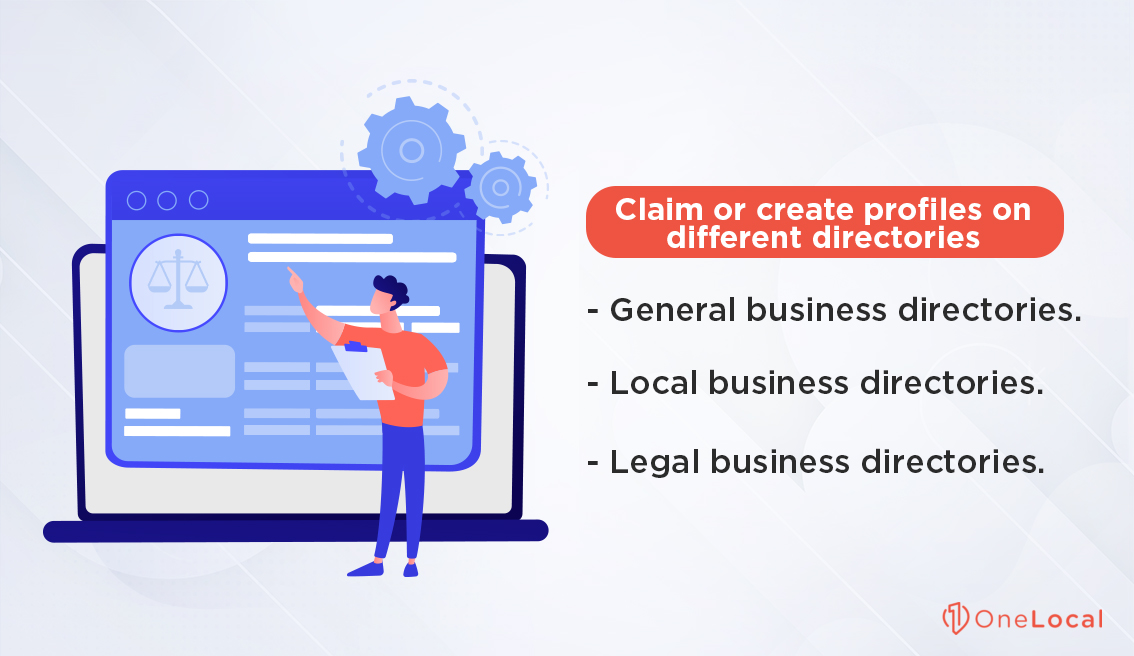
You also want to make sure you register a Google Business Profile and fill out the information there, as well as verify your business.
5. Optimize your on-site data and meta data for search engines.
One of the core elements of SEO is what is known as on-site or technical SEO. It’s the combination of factors you control on your website, as opposed to factors from other websites, like backlinks and citations. Most of them are one-and-done projects that can be optimized and then ignored other than an occasional audit. These include things like:
- Use a human-readable URL structure, generally with a keyword in the URL.
- Keep your URLs on the shorter side whenever possible.
- Optimize your meta title with a keyword at the front.
- Optimize your content with keywords, formatting, and internal links.
- Optimize images to be smaller in file size, and add meta/alt text to them.
- Submit a sitemap to Google for full indexation.
- Speed up load times and optimize Core Web Vitals.
- Make sure you have a well-formed mobile site version.
- Monitor and fix broken links.
- Use HTTPS/SSL security.
- Use relevant markup from Schema.org.
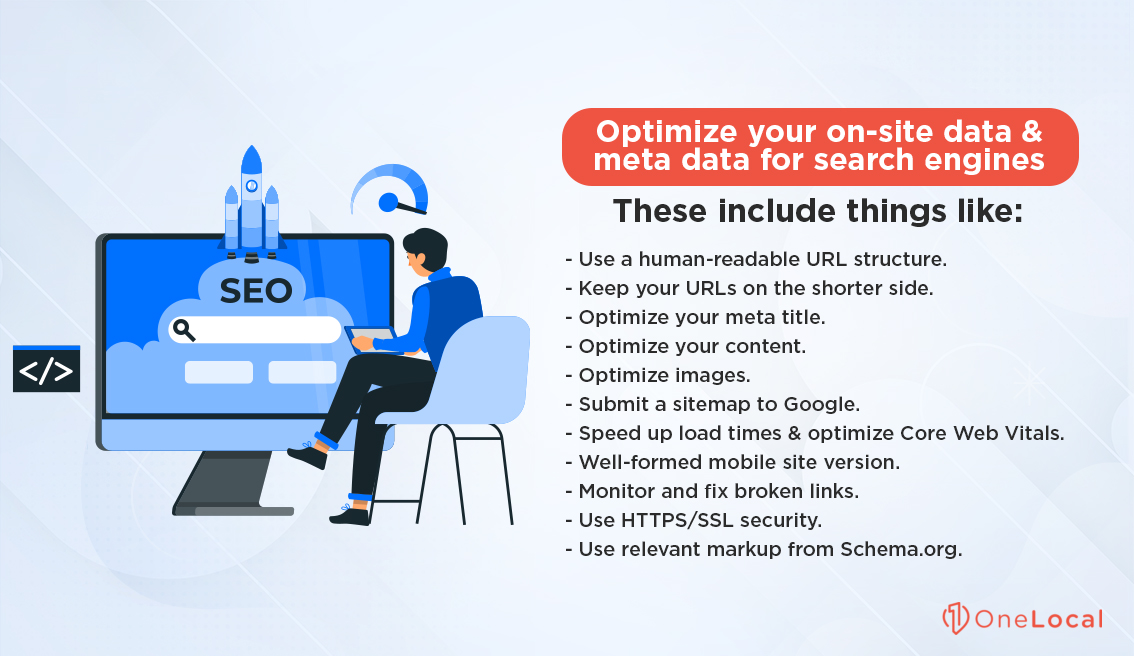
Most of this can be checked in a thorough site audit, optimized in a single pass, and monitored moving forward. A good marketing agency can help with this process, if necessary, but there are also large numbers of free and paid tools to help as well.
6. Build and use a presence on social media.
Social media is a fickle system, where interest in your business can live or die based on a handful of posts or a change in the algorithms. Still, social networks tend to be among the biggest sites on the web, and you can use them for free. The only question is, which ones?
- Facebook. Facebook is by far the biggest social network, and despite recent issues, it’s still good to have an active page.
- Twitter. You may not be able to do much customer service on Twitter, but you can potentially use it to engage with users, answer legal questions, weigh in on current events, and build personal authority.
- LinkedIn. The top-tier professional network, you can use this to link up with potential clients, as well as potential hires.
- YouTube. The video site is an excellent place to engage with people if and only if you can consistently produce quality videos.
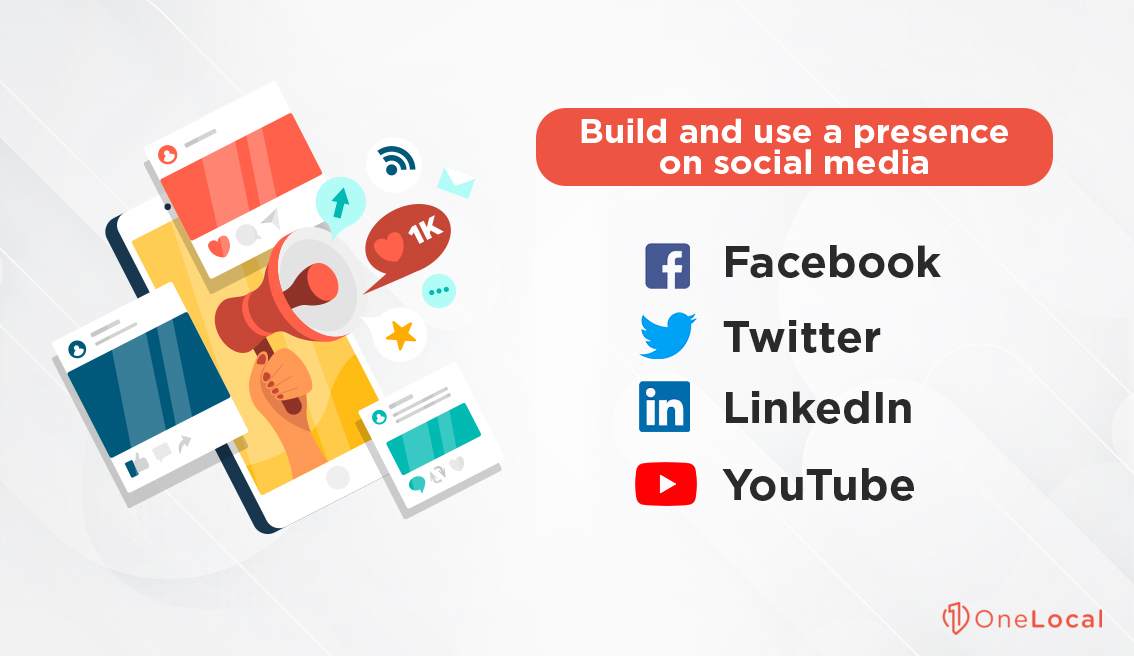
Making use of social media can be tricky and time-consuming, so we recommend only picking up networks you can keep active rather than trying to register profiles on as many as you can.
7. Consider paying for locally-targeted advertising.
Up above, in the regulations law firms need to follow, the first entry is “You can advertise through any form of media.”
Even the Bar Association recognizes that, for a lawyer to find clients, they need to advertise. There are rules on how and where you can advertise, but it’s not prohibited. Thus, paying for advertising can be a good idea.

The tricky part is the expense. Because of the high potential earnings from even a single conversion, legal advertising tends to be one of the most expensive niches. Only invest in it if you have the time to optimize it and do it right.
8. Hire a great local marketing agency.
Finally, remember that almost everything on this list can be outsourced. There are companies out there – like ours – that specialize in local marketing for any industry and any business. If you want to:
- Build more reviews and testimonials for your law firm
- Run high-converting local advertising
- Optimize your site SEO for Google visibility
- Organize and track your customers and contacts
- Set up a messaging and live chat system
You can contact us for these services and more. Reach out today, and we can discuss any of your unique needs in detail. Additionally, please feel free to reach out if you have any questions regarding either legal marketing or the services we can provide for you. We will gladly answer all of your questions or concerns that you or your law firm may have for us.


